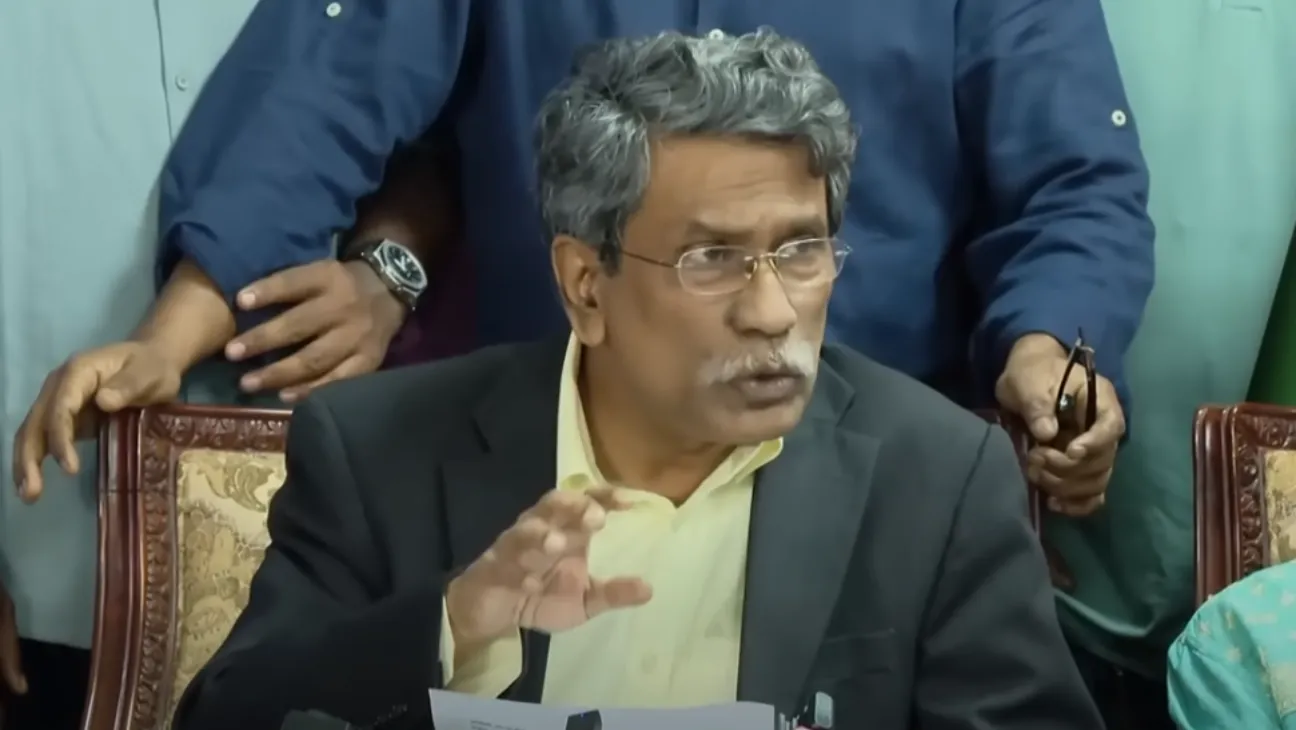Professor Ali Riaz, Vice-Chairman of the National Consensus Commission, said on Monday that full consensus on all reform proposals is unlikely but reaffirmed the commission’s commitment to continued dialogue with political parties.
He made the remarks during the second round of discussions on day ten of the commission’s meetings, held at the Foreign Service Academy in Dhaka.
“We are striving to ensure that the proposals align with your views and aspirations,” Riaz told party representatives at the session.
BNP and Jamaat-e-Islami were among the parties that joined the discussion.
Key Members Present and Proposals Discussed
Several senior members of the commission attended, including Abdul Muyeed Chowdhury of the Public Administration Reform Commission, Safar Raj Hossain from the Police Reform Commission, Badiul Alam Majumdar of the Electoral System Reform Commission, Justice Emdadul Hoque representing Judicial Reform, and Dr Iftekharuzzaman for anti-corruption reforms.
Professor Riaz explained that the process doesn’t require agreement from all parties on every point. “I have repeatedly said, we will not agree on everything,” he told attendees.
He pointed out that some proposals, such as the creation of a National Constitutional Commission, had faced resistance from several parties. In response, the commission presented a revised version rather than abandoning the idea entirely.
“There was initial objection to the inclusion of pluralism, so it was not included in the second revised version,” he said. Similarly, a proposal to form four provinces did not gain traction and was removed from the agenda.
Dialogue Over Perfection
The commission’s approach, according to Riaz, is to move forward by identifying areas of agreement and setting aside unresolved issues for now.
“We are proceeding by leaving out several issues because consensus cannot be reached on all of them. Still, we must focus on areas where agreement is possible,” he said.
While a few issues are off the table, others are still under review or being adjusted through more consultation.
“Matters where preliminary consensus has already been reached have not been brought up today. While political positions may differ, there is a collective effort to find common ground,” Riaz noted.
Next Steps and Time Constraints
Addressing scheduling challenges, Riaz acknowledged the time pressures on party leaders but asked for their continued engagement.
“We had initially thought this would be the last meeting this week,” he said. “But based on feedback from most parties, we will likely meet again once more this week.”
He added that upcoming events, including the death anniversaries of Shaheed Abu Sayed and Mugdha, might affect participation. Still, he urged leaders to prioritize the reform process alongside other commitments.
“If you prioritise the commission’s meetings alongside your organisational activities, it will help us move forward,” he told party members.
Call for Continued Participation
Riaz closed with an assurance that the commission is not moving forward blindly. It plans to reflect party feedback in future drafts.
“After our talks with you, the commission will sit to review how to revise proposals in line with your positions. We will keep up this effort wholeheartedly to avoid misunderstandings and ensure the proposals reflect your inputs and expectations,” he said.
Full agreement might be unlikely, but talks are still ongoing. For now, the commission is sticking to its path.









